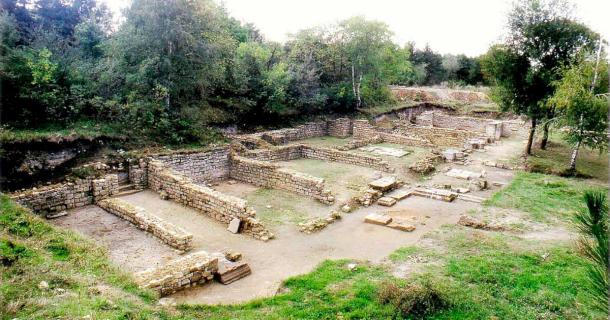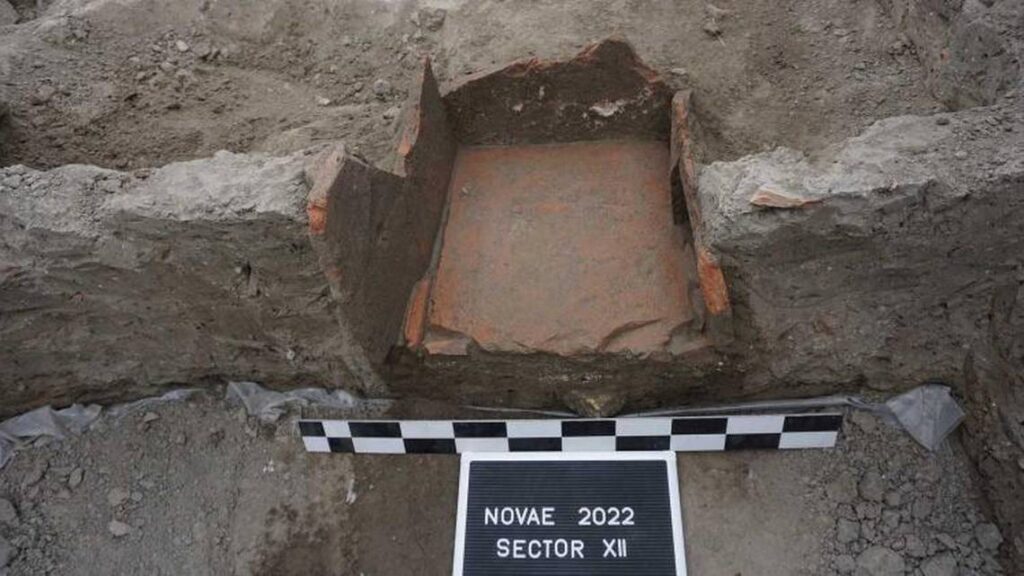A mythical sense of linear progress illuminates human history, as the general public often views older civilizations as lesser and barbaric. However, the study of archeology provides insight into this falsehood, revealing how historic civilizations lived. Further inspection often reveals forgotten cultures as more cohesive and advanced than surface-level inspection would suggest. A recent example of this came in the form of a “fridge” that was unearthed by archaeologists at a Roman military camp over the course of the last year.
The “fridge” was discovered at the Novae Camp in Northern Bulgaria. This camp is an ancient Roman military camp that the 1st Italian Legion is heavily associated with. Archeologists studying the site believe that it was founded somewhere in the middle of the 1st Century AD. The camp is a little over 44 acres and due to the discovery and preservations of the Romans headquarters, barracks, baths, and hospital, it has become a hotspot for archeological discovery. It has also been discovered that the camp is surrounded by a settlement to its west and a necropolis that surrounds its eastern and southern borders.

However, amid these historic discoveries came something that resembles a popular modern household appliance, a refrigerator. The Roman “refrigerator” was discovered inside of the Roman military barracks. It was a rectangular container made of ceramic plates built into the foundation of the barracks. This location combined with the stone foundation ensured the box was relatively well insulated. Furthermore, the sight had a complex aqueduct system constructed with lead and ceramic pipes. These pipes bordered the Roman “fridge” on one of its long rectangular sides. This construction and cooling system is what draws comparisons to modern refrigerators. Bulgarian temperatures are also below freezing for five months of the year, so archaeologists speculate that it is likely the ceramic box was packed with snow and ice for cooling purposes.
Finally, an interesting part of this discovery is that the ceramic box was not empty. It was full of ceramic pieces and many baked bone fragments, which archeologists speculate are likely remains from cooked food. There was also a bowl containing charcoal which is believed to be a form of insect repellent. This Roman “fridge” was particularly rare because the fridges often did not survive building reconstruction. Luckily, this one survived and will continue to provide modern archeologists a window into the past of ancient Roman military camp life.

Work Cited:
Altuntaş, Leman. “Archaeologists Discovered How Wine Was Cooled in Roman Legions on the Danube.” Arkeonews, 15 Sept. 2023, arkeonews.net/archaeologists-discovered-how-wine-was-cooled-in-roman-legions-on-the-danube/.
Falde, Nathan. “Archaeologists Unearth First Century Roman Refrigerator in Bulgaria.” Ancient Origins Reconstructing the Story of Humanity’s Past, Ancient Origins, 1 Oct. 2022, www.ancient-origins.net/news-history-archaeology/novae-roman-refrigerator-0017341.
Pflughoeft, Aspen. “Ancient ‘Fridge’ — with Meat Still inside – Miami Herald.” Miami Herald, 11 Oct. 2022, www.miamiherald.com/news/nation-world/world/article267117666.html.
Extra Links:
https://www.heritagedaily.com/2023/09/roman-fridge-found-at-novae/148589
https://imperiumromanum.pl/en/discoveries/scientists-trying-to-recreate-roman-refrigerator/

What socio-historical insights does the fridge offer besides its food-preservatory property per se? More specifically, what do the fridge and its contents say about the “ancient Roman military camp life”?